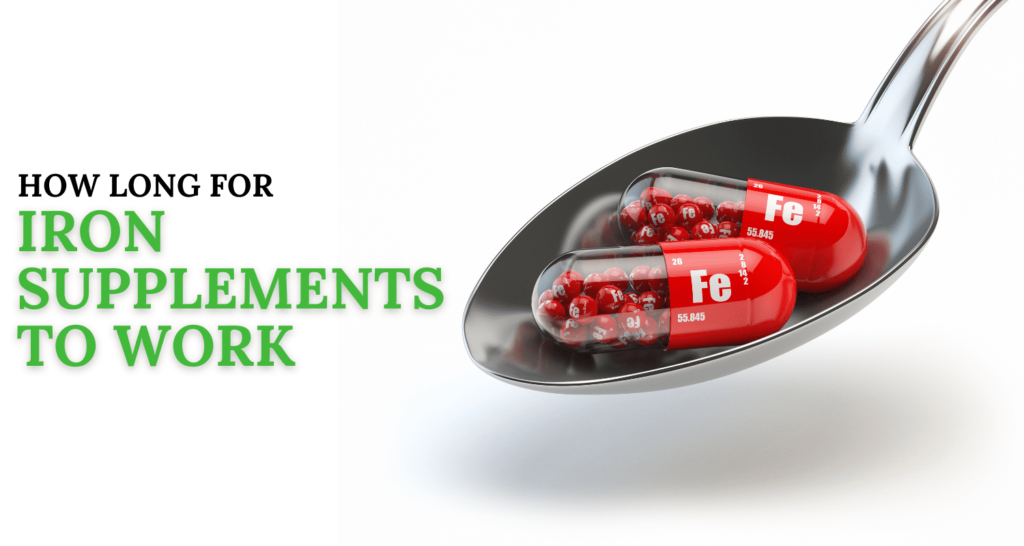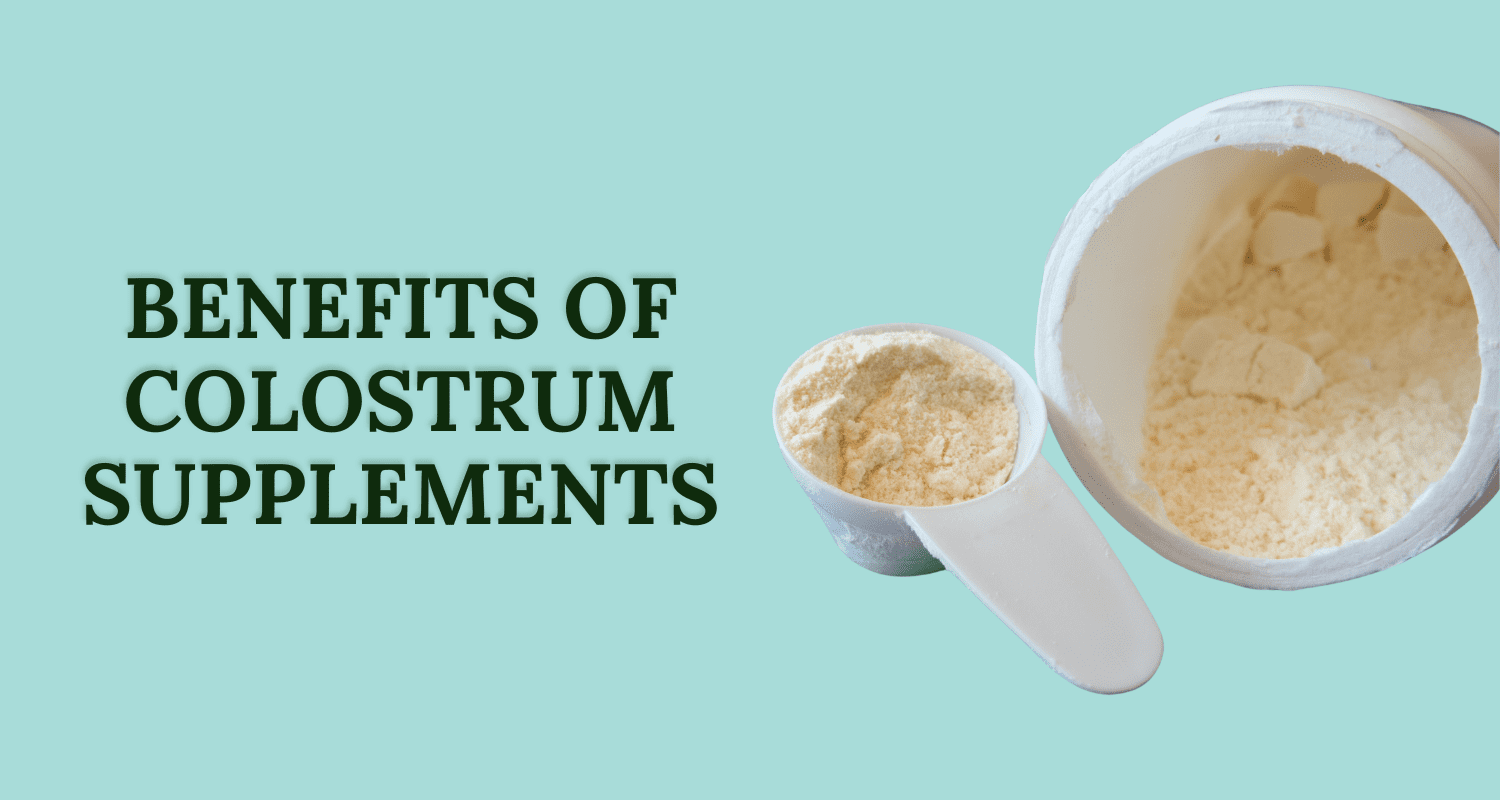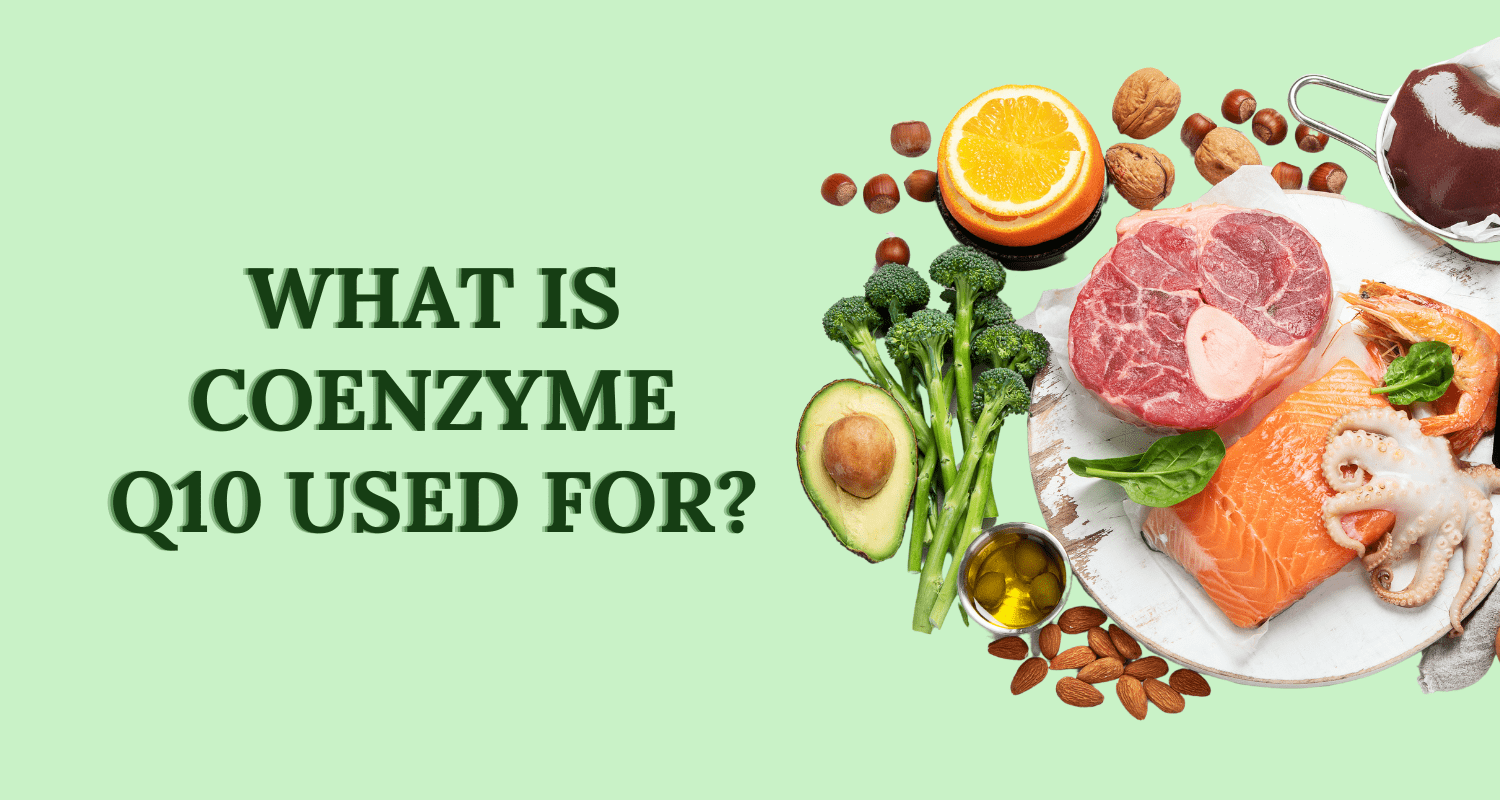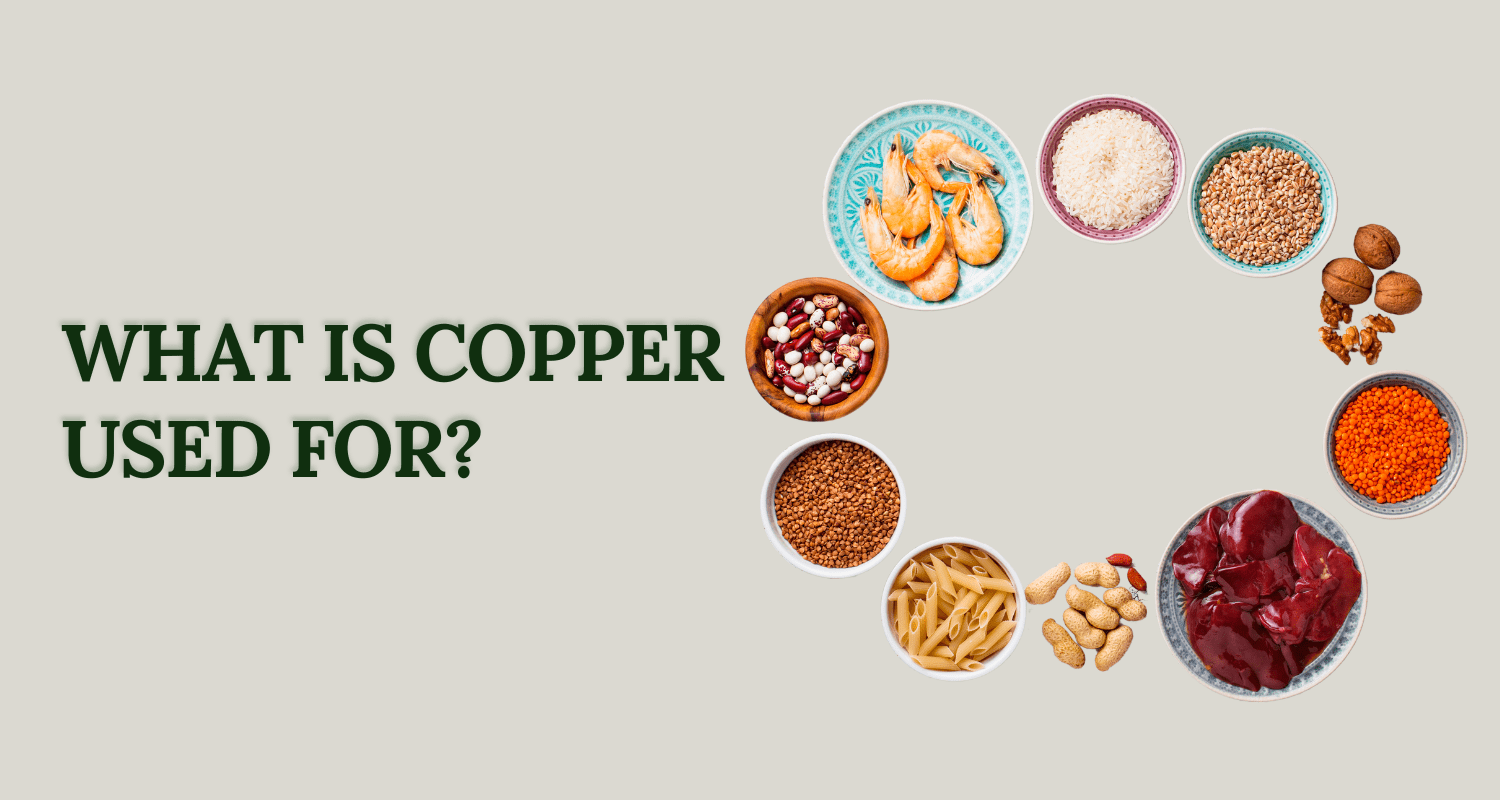Did you know that iron deficiency affects approximately 2 billion people worldwide, making it one of the most common nutritional deficiencies?
If you’re considering taking iron supplements to address low iron levels, you may wonder how long it takes for them to work and what effects you can expect.
In this article, we’ll explore how long for iron supplements to work, and effectiveness of iron supplements, factors that influence their absorption, and tips for optimizing their impact on your health.
Let’s delve into how long for iron supplements to work.
Key Takeaways:
- How long for iron supplements to work? Oral iron supplements typically start working within 3 to 7 days.
- Symptoms of iron deficiency may improve after 2 to 4 weeks of supplementation.
- Hemoglobin levels may take up to 2 months to return to normal.
- Continue taking iron supplements for at least 6 months after iron levels have normalized.
- Optimizing iron absorption through proper timing, dietary considerations, and managing side effects can enhance the effectiveness of iron supplements.
Iron Pill Overview
Iron pills are commonly used as oral iron supplements to prevent and treat iron deficiency, a condition characterized by low iron levels in the body.
These supplements come in various forms, including capsules, tablets, and liquids.
The most commonly used types of iron pills are:
- Ferrous fumarate: This type of iron pill contains the highest amount of elemental iron, making it a popular choice for supplementation.
- Ferrous sulfate: Another commonly used iron pill, ferrous sulfate, is available in different formulations and dosages, providing a range of options for individuals with varying iron needs.
- Ferrous gluconate: This type of iron pill is known for its gentle and easily absorbed form of iron, making it suitable for individuals who may experience digestive issues with other forms of iron.
It is important to note that different iron pill formulations may contain varying amounts of elemental iron per dose.
Therefore, it is crucial to read the supplement label carefully to determine the specific dosage and type of iron in each pill.
Consulting with a healthcare provider or pharmacist can help determine the most suitable form and dosage of iron pills based on an individual’s iron levels and specific needs.
Tips for Taking Iron Pills Correctly
Taking iron pills correctly can optimize the absorption and effectiveness of the supplements.
Here are some tips recommended by pharmacists:
- Take iron supplements with food: Consuming iron pills with a meal or snack that contains vitamin C can enhance iron absorption in the body. Citrus fruits, strawberries, and bell peppers are excellent sources of vitamin C. Avoid taking iron supplements with dairy products, as calcium can inhibit iron absorption.
- Separate iron from medications: Some medications, such as antacids, antibiotics, and proton pump inhibitors, can interfere with iron absorption. To ensure maximum effectiveness, it is important to separate the intake of iron supplements from these medications. Consult with a healthcare provider or pharmacist for guidance on the appropriate timing.
- Manage iron supplement side effects: Common side effects of iron supplements include constipation, nausea, and stomach pain. To minimize these side effects, consider taking iron pills with a full glass of water and spread them throughout the day. If constipation becomes an issue, increasing fiber intake and staying hydrated can help alleviate symptoms.
- Choose the best time to take iron supplements: While there is no specific time that universally applies to everyone, it is generally recommended to take iron supplements in the morning or early afternoon. Avoid taking them before bedtime, as they may cause discomfort and disrupt sleep.
- Follow the recommended dosage: It is crucial to follow the recommended dosage provided by the healthcare provider or pharmacist. Taking more iron than necessary can lead to iron overload, which can have adverse health effects. If unsure about the appropriate dosage, seek professional advice.
By following these tips, individuals can maximize the benefits of iron supplements while managing potential side effects.
It is always recommended to consult with healthcare professionals for personalized advice and guidance.
Signs that Iron Pills are Working
The effectiveness of iron pills can be assessed by monitoring the improvement of iron deficiency symptoms.
As iron levels begin to rise, individuals may experience several positive changes, indicating that the iron pills are working.
One notable sign of iron pill effectiveness is the improvement of iron deficiency symptoms.
Common symptoms of iron deficiency include fatigue, weakness, and shortness of breath.
As iron levels increase, these symptoms may gradually diminish, and individuals may start to feel more energetic and alert.
Increased energy levels can be a promising indication that the iron pills are effectively addressing the underlying iron deficiency.
Another sign that iron pills are working is the resolution of anemia symptoms.
Anemia is a condition characterized by low levels of hemoglobin, the protein responsible for transporting oxygen throughout the body.
Iron deficiency is a common cause of anemia.
When iron levels are replenished through iron pill supplementation, hemoglobin levels may start to normalize, leading to the resolution of anemia symptoms.
These symptoms can include pale skin, dizziness, and rapid heart rate.
It is important to note that individual responses to iron pills may vary, and the rate of improvement can depend on several factors, such as the severity of iron deficiency and overall health.
It is recommended to consult with a healthcare provider to monitor progress and determine the optimal duration of supplementation.
Optimizing Iron Absorption for Better Results
When it comes to iron supplementation, optimizing iron absorption is crucial for achieving better results.
One way to enhance iron absorption is by incorporating an iron-rich diet into your daily routine.
Certain foods can enhance the absorption of iron in the body, while others can inhibit it.
Foods that Enhance Iron Absorption
- Vitamin C-rich foods: Consuming foods high in vitamin C, such as oranges, strawberries, and bell peppers, can enhance iron absorption. Consider adding a squeeze of lemon to your iron-rich meals or pairing them with citrus fruits for optimal absorption.
- Meat, fish, and poultry: Animal-based foods are excellent sources of heme iron, a form of iron that is more readily absorbed by the body. Include lean cuts of beef, chicken, and fish in your meals to boost iron absorption.
- Legumes: Legumes such as lentils, chickpeas, and kidney beans are not only a good source of plant-based iron but also contain components that enhance iron absorption. Pairing legumes with vitamin C-rich foods can further improve absorption.
- Dark leafy greens: Vegetables like spinach, kale, and Swiss chard are rich in iron and other beneficial nutrients. Pairing these greens with vitamin C-rich foods can help maximize iron absorption.
- Nuts and seeds: Snack on nuts and seeds like almonds, cashews, and pumpkin seeds to increase iron intake. These foods also provide additional nutrients that support overall health.
Foods that Inhibit Iron Absorption
- Dairy products: The calcium present in dairy products can hinder iron absorption. It is recommended to separate the consumption of dairy products from iron-rich meals by a few hours to optimize iron absorption.
- Coffee and tea: The tannins in coffee and tea, especially when consumed close to meals, can hinder iron absorption. If you enjoy these beverages, consider having them between meals rather than with iron-rich foods.
- High-fiber foods: While fiber is essential for digestive health, consuming high-fiber foods like whole grains and bran cereal alongside iron-rich meals can interfere with iron absorption. It is best to separate the consumption of these foods from iron-rich meals by a few hours.
- Calcium supplements: Like dairy products, calcium supplements can impede iron absorption. If you take calcium supplements, it is advisable to take them at a different time than your iron supplements or iron-rich meals.
To optimize iron absorption, it is important to consider both the foods that enhance and inhibit iron absorption.
By incorporating iron-rich foods into your diet and managing the consumption of hindering foods, you can maximize the effectiveness of iron supplementation.
Remember to consult with a healthcare professional for personalized dietary considerations and recommendations for your specific iron supplementation needs.
Factors that Determine Iron Supplement Duration
The duration of iron supplement use depends on several factors that influence individual iron needs and the underlying causes of iron deficiency.
While there is a general recommendation to take iron supplements for at least six months to fully replenish iron stores in the body, the actual duration may vary based on individual circumstances.
Individual Iron Needs
Each person’s iron needs may differ based on several factors, including age, sex, and overall health.
For example, pregnant women and individuals with heavy menstrual bleeding may require higher iron supplementation to meet their increased iron needs.
Therefore, it is essential to consider individual iron requirements when determining the duration of iron supplement use.
Underlying Causes of Iron Deficiency
Iron deficiency can have various underlying causes, including inadequate dietary intake, poor iron absorption, and chronic conditions that lead to increased iron requirements or impaired iron utilization.
Identifying and addressing the specific cause of iron deficiency is crucial in determining the duration of iron supplement use.
For example, if iron deficiency is caused by malabsorption issues, ongoing supplementation may be necessary even after iron levels have normalized.
Sustainability of Iron-Rich Diet
While iron supplements play a vital role in replenishing iron stores, incorporating iron-rich foods into the diet is equally important for long-term iron maintenance.
Consuming a balanced and sustainable diet that includes sources of heme iron (found in animal products) and non-heme iron (found in plant-based foods) can help sustain optimal iron levels and reduce the reliance on supplements over time.
In conclusion, the duration of iron supplement use is influenced by factors such as individual iron needs, the underlying causes of iron deficiency, and the sustainability of an iron-rich diet.
It is recommended to consult with a healthcare professional to determine the appropriate duration of iron supplementation based on individual circumstances and iron status.
Impact of Iron Supplement on Overall Health
Maintaining adequate iron levels through supplementation can have a positive impact on overall health.
When we ensure our iron levels are sufficient, we support various essential bodily functions and prevent complications associated with iron deficiency.
Benefits of Maintaining Adequate Iron Levels
- Improved Energy Levels: Having enough iron allows our bodies to produce hemoglobin, a protein that carries oxygen to our organs and tissues. This helps combat fatigue and promotes overall energy.
- Optimal Cognitive Function: Iron plays a crucial role in brain function and development. Adequate levels of iron support cognitive processes, such as memory, attention, and concentration.
- Enhanced Immune System: Iron is essential for a healthy functioning immune system. It enables the production of white blood cells, which are crucial for fighting off infections and diseases.
- Healthy Hair, Skin, and Nails: Iron contributes to the production of collagen, a protein that supports the health and appearance of our hair, skin, and nails.
- Proper Muscle Function: Iron is necessary for the proper functioning of our muscles, including muscle contraction and oxygen transportation.
By maintaining optimal iron levels, we reduce the risk of complications related to iron deficiency.
These complications include:
- Anemia
- Impaired growth and development in children
- Reduced exercise performance
- Increased susceptibility to infections
- Difficulty in maintaining body temperature
Ensuring adequate iron levels through supplementation and a balanced diet can greatly improve overall health and well-being.
It is important to consult with a healthcare provider to determine the correct iron dosage and duration of supplementation based on individual needs and iron levels.
Conclusion
How long for iron supplements to work? The iron supplement timeline to work can vary from person to person, but oral iron supplements typically start working within 3 to 7 days.
Symptoms of iron deficiency may improve after 2 to 4 weeks of supplementation, but iron supplement effectiveness duration can take up to 2 months for hemoglobin levels to return to normal.
Optimizing iron absorption by considering dietary factors, taking iron supplements as recommended, and addressing underlying causes of iron deficiency can contribute to better results.
Monitoring iron levels through blood tests and consulting with healthcare providers can help determine the effectiveness of iron supplements on an individual basis.
By following the recommended guidelines mentioned in our article “how long for iron supplements to work”, individuals can support their overall health and well-being by maintaining adequate iron levels.
FAQs
How long for iron supplements to work?
Oral iron pills results timeframe starts working within 3 to 7 days. Symptoms of iron deficiency usually begin to improve after 2 to 4 weeks of supplementation, but it may take up to 2 months for hemoglobin levels to return to normal.
How soon after taking iron supplements will I feel better?
Feeling better can vary, but some individuals report quick iron supplement results as increased energy levels within a week or two of starting supplementation.
How long does it take to raise iron levels?
Raising iron levels significantly may take several months of consistent supplementation and dietary changes.
How quickly do iron tablets take to work?
Optimal iron supplement duration takes a few days to a week, but noticeable improvements may take longer.
How do you know if iron pills are working?
Regular blood tests can track changes in iron levels, while improved energy levels and reduced fatigue may also indicate effectiveness.
Can I eat a banana with my iron pill?
Yes, eating a banana with an iron pill can aid absorption due to its high vitamin C content, which enhances iron absorption.
How can I raise my iron level quickly?
Along with supplements, consuming iron-rich foods like red meat, poultry, fish, lentils, and spinach, paired with vitamin C-rich foods, can expedite iron absorption.
Disclaimer: This content, including advice, provides generic information only. It is not a substitute for a qualified medical opinion. Always consult a specialist or your doctor for more information. Nutrition Cult does not claim responsibility for this information.




